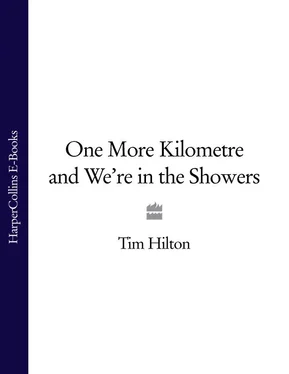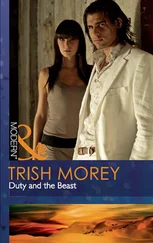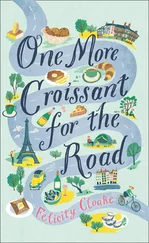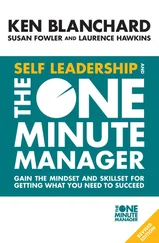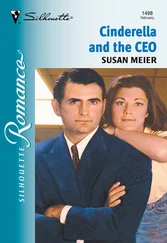I received a couple of postcards in the next few days. They must have meant a lot to me, for I kept them and have them still, after forty years and more. This was Margaret: ‘Dear Tim, where oh where were you when we wanted to say goodbye this morning? We are on deck on this boat now and it is very cold and blowy. We shall be in Paris at suppertime.’ Bon appétit , comrades everywhere. The next week my father writes from Italy – Florence actually, now I look at the postmark. ‘Dear Tim, we had a very jolly ride in a bus today. In every village the people were having feasts in the open air to celebrate the paper which is the Italian Daily Worker. Lots of Love Rodney.’
I resented these messages, since I liked being in France and thought that I should not have been left in Raynes Park. My grandparents did not know what to do with me. By good fortune, they had a library in their house, a real library with fitted bookshelves. Within this room I dreamt of becoming a writer. Its windows opened on to a large garden. There was a veranda, a workshop, a garage, lawns, a tennis court, the orchard, the kitchen garden and then the chicken runs. One day in that summer of 1951, bored, lonely and not a happy boy, I wandered into the garage. My grandfather had a Bentley but scarcely ever drove it, preferring to potter among his redcurrant bushes. So the garage was not much used. I pushed open the door and saw a bicycle behind the Bentley. And that is how I began.
Most boys or girls need to be taught how to ride a bicycle. In my case no tuition was needed. I was a natural. Just as some young animals swim as soon as they are thrown into the water, I was immediately balanced, fast and athletic. The machine from the garage was too big and I perched between the saddle and the top tube. None the less I managed. Within half an hour the bike and its rider were on the road, down Grand Drive towards the Kingston by-pass, whose concrete blocks and expansion gaps I recalled in many a later time-trialling effort.
My first days as a cyclist were magical. Never in my short life had I felt anything like the aerial liberation the bicycle granted me. Yet the Raynes Park bike was nothing special. Later on, I had another crucial physical experience. That was when I first rode a light racing machine. Suddenly I was a bird: uncatchable, self-contained, soaring and zooming towards the horizon, free from human worry and therefore happy. Cycling is about physical pleasure and happiness. I know that the bike can also make you weep, especially when you’re a teenager and don’t understand your body. Pleasure is none the less our goal and daily bread; and at some point in a good ride – as any time triallist will tell you, but will not be able to explain – pleasure and suffering are one and the same thing.
After long pleading with the ruling class of 90 Bristol Road I was finally granted my own bike. It was not to be a new machine. Some puritanical ukase of the communist ethos forbad expenditure on goods that were easily advertised. For years, I’m amazed to recall, my family didn’t even have a radio. However, from the cycling point of view I was fortunate that my first bike was patched together. It was built by an old metalworker who produced cheap machines as a hobby. Bikes of his sort were known as ASPs, the initials standing for All Spare Parts. Superficially, my ASP had the look of a racing machine. It had dropped bars, a bottle cage and Benelux gears. In reality the ASP was cumbersome and went dead on the hills. But it taught me to appreciate good equipment. Nowadays one of my spacious garden sheds contains twelve good bicycles, all in use at various times of the year. I have never been a motorist and have never owned a car.
The man who assembled my ASP was a club cyclist. By this term I mean someone who is dedicated to the culture of the bike, as well as being a member of a club. He showed me his own best machine, which was of great beauty and had the céleste colour of Bianchi frames from Italy. Perhaps it was indeed a Bianchi? Or had he somehow, in 1951–2, realised that this was the colour of Fausto Coppi’s frame? He said that his son, who was then entering an apprenticeship and for a couple of years had been a member of his father’s club, would not be allowed such a bicycle until he was much older. Father and son lived alone together, the boy’s mother having died, and the son was no doubt taught that cycling is a serious business. I never met this boy and didn’t really like his father. I guessed he thought it correct that the experience of bereavement should be a part of growing up.
Cyclists of my generation were usually brought up within local divisions of the Cyclists Touring Club and then joined more specialised clubs when they began to race. This was my experience. I had the good fortune to have a mentor in Albert Burman, a family man who was active in both the Birmingham CTC and the Warwickshire Road Club. Many people who did not know him will recall Albert with affection for the cartoons he contributed to our weekly paper, Cycling. A collection of his drawings, Laugh with Burman , is a treasured possession. Albert and his wife Gwen died long ago. Their daughter, my adored Joan, went away to somewhere in Canada, her lovely, liquid brown eyes a legacy from her father.
In the 1950s Albert Burman was still a useful time triallist, especially at the classic 25-mile distance, but was taking it easy when I, as a boy, became his clubmate. Not too easy. A club run when Albert was captain would have a fast pace. He had also been a pioneer of cyclo-cross and off-road riding. So his routes were always difficult, with forays on unmetalled roads, across fields, along canal banks and through the tracks of the Forest of Arden or Yarningale Common. Albert also insisted that the lunch break should be taken in the garden of some country pub. One of his favourites was to the west of Bewdley, on the hill towards the Wyre Forest. I always sat next to Joan. Her father would settle himself opposite us, take the first sip from his pint of mild and then produce a folded copy of that day’s Reynolds News , his preferred Sunday reading, for Albert was a co-operator and a trade unionist.
So also were many of the adult cyclists whose company I joined. At that period cycling still had many links, or at least a general friendship, with the labour movement. The ethos – still with us – was of egalitarianism and hands clasped in fraternity. We do not always live up to this ideal, but it is accepted that cyclists always talk to each other, and mostly as equals, whether they are boys or men, the racing members of an elite club or the most leisurely of tourists. Beside this camaraderie there is no political agenda among cyclists, which is one reason why I found them much more agreeable people than communists; and I still believe that the ‘fellowship of the road’, or whatever similar phrase was used, reflected a great social reality.
Cyclists thought themselves set apart from the rest of the world, as they were and are; but in the 1950s it was gladdening that we were so numerous. There were hundreds of cycling clubs throughout the land and as many as sixty people might join the Sunday club run, especially if the club was in a city. Club runs were often organised so that racing members – whose events had been held much earlier on Sunday mornings – could be joined by their clubmates at the elevenses halt, maybe 20 miles or so from the ‘meet’, which for us was a point on one of the roads leading south from Birmingham: the Maypole on the Alcester Road, the Robin Hood roundabout on the Stratford Road, the Barley Mow in Solihull, which was on the way to Warwick, or the Northfield Baths on the road that led to the Lickey Hills and Worcester.
Practically everybody raced occasionally, even if they didn’t race every week. Cycling as recreation was mingled with cycling as sport. Then as now, people talked about ‘going out training’ when they were simply leaving the house for a ride. Racing members of a club also took part in social activities that had none of the dash and excitement of competition. There were many camping weekends, map-reading competitions and pantomimes. ‘Rabbit pie suppers’ could be good. They were begun in the days of austerity and rationing. Many were the whispers about the poacher-cyclists who provided the rabbits. I thought it strange that fit young men were prepared to attend the lantern-slide lectures that were held not only by sections of the CTC but also by clubs whose first concern was with racing. But cyclists did go to such events; and these are some of the talks they might have heard:
Читать дальше
